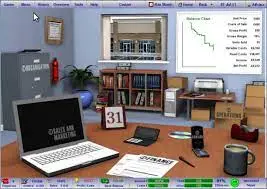How to turn an entrepreneurial idea into a tangible business

Starting a business is never an easy feat and in Mohammed’s case it is a journey filled with many entrepreneurial ideas and learning experiences.
From a young age, Mohammed Ali was always brimming with ideas and the launch of his first business was just the starting point of his entrepreneurial journey. Years later, the entrepreneur is now using his knowledge and experience to teach others how to turn ideas into tangible businesses.
Keep reading to find out more about how your idea could become reality.
Introducing Mohammed Ali
Meet serial entrepreneur, and current Head of Entrepreneurship at London South Bank University, Mohammed Ali.
Since 2008, Mohammed has started multiple businesses, worked globally, and dedicated himself to working with other young people and students to help turn their dreams into reality.
He explains, “I’ve been a student entrepreneur, a graduate entrepreneur, I’ve run businesses in the UK, Middle East, and China, and I’ve found my passion working in universities with other young people and students, helping them turn their ideas into reality. I’ve worked at the University of Hertfordshire, University of Birmingham, and now London South Bank University.”
The first entrepreneurial idea
Since an early age, Mohammed already had an entrepreneurial mindset with the multiple and diverse ideas that he would come up with.
Mohammed explains, “I was very interested in ideas and only ideas. I was one of those people that had lots of ideas. I’d always see ideas, but I’d never actually do anything with them.”
Many of these entrepreneurial ideas never materialised yet this didn’t stop Mohammed from continuing down a path of entrepreneurship. During his time studying at the University of Hertfordshire, he decided to start his first business alongside the rise of social media.
Mohammed explains, “I set up a very niche marketing agency called ‘Stripe Shirt Marketing’. Social media was just starting to take off in 2008, and I realized that between Customer Relationship Management (CRM) systems and social media connections there was an opportunity to use social media to target a local market.”
This opportunity allowed Mohammed to work within the SME (Small Business Enterprise) industry and learn more about entrepreneurship. However, his perspective on entrepreneurship and startup knowledge expanded when he was introduced to SimVenture Classic.
Learning from SimVenture Classic
As a student, Mohammed was introduced to the simulation SimVenture Classic as part as one of his modules. Oddly, the simulation reminded him a lot of an old childhood game.
Mohammed clarified, “As a young boy, growing up in the inner city of London, maths wasn’t my favourite topic in school, but I really enjoyed playing Championship Manager. It’s essentially a football numbers game. It’s a maths game related to a topic that I liked. I remember seeing SimVenture [Classic] for the first time … and it reminded me of Championship Manager.”
Mohammed explained that SimVenture Classic taught him a lot about entrepreneurship and the operations needed to run a business. The simulation allowed him to progress into the next stage of entrepreneurship and start up his first business with a foundation to work on.
“I owe a lot of my entrepreneurial practice to SimVenture. It was the first time I realized that entrepreneurship is about processes, structures, markets and all the different parameters around decision making – on top of an idea. Most importantly, I could see the consequences of my decisions, and I was wrong a lot of the time. So, learning about those foundations, those operational and strategic financial foundations. were what helped me launch my first business.”
The entrepreneur explains that SimVenture Classic compelled him to work beyond the entrepreneurial idea and look at markets, operations, and the many different things that a business relies on. It was this starting point that made him the serial entrepreneur he is today.
Engaging student’s entrepreneurial ideas with SimVenture tools
Now as Head of Entrepreneurship at London South Bank University, Mohammed works with and encourages students into developing their business skills and entrepreneurial ideas. He explains that the tools provided by SimVenture have been helpful solutions in allowing students to hypothesise and truly test their ideas.
Mohammed further explains, “I don’t think students have a huge appetite for failure. But I think experimentation and iteration are much more vibrant prospects for them and learning solutions like SimVenture Validate show them that, to run a successful startup, you must be able to hypothesize and then truly test your hypotheses, not to see what you want to see, but to see what comes back when you project forward and engage the market.”
People naturally want to fall in love with their business idea and not the experimentation, iteration, and research, Mohammed explains. SimVenture’s tools help to guide people in the right direction and helps with the ‘heavy lifting’ once someone has an idea.
“SimVenture tools can really help people to stop falling in love with their idea and start falling in love with the process of experimentation, and the execution of business startup. It also helps to stop a lot of big expensive mistakes where people fall in love with their idea and just push their idea out into the world.”
Final thoughts on SimVenture
Mohammed describes SimVenture products as helpful and exciting tools that can bring together ideas and teach business startups. From his experience using and teaching with SimVenture tools, Mohammed has some final thoughts to share.
He explains, “What I like about SimVenture products is the fact that they bring together all the different component parts in a gamified but authentic and contextualized manner. By playing with the parameters of financial decisions, you can learn in so many different ways because you see how a connected ecosystem works.”
“When you see the consequences of decisions, you are much more likely to want to find out why things have happened, especially if you have been responsible for making it happen. This kind of learning is far more impactful compared to teachers telling students to do this or make sure they do that.”
“SimVenture products don’t just have a shiny interface and a wonky back-end. There is always a reliable administrative back-end and the interface always helps bring business learning to life.”
Thank you to Mohammed Ali for sharing your entrepreneurial journey and teaching experience. It’s been an impactful and educational story to read.
For readers, we hope this article inspires you and that Mohammed’s experience with the many SimVenture products helps you in your entrepreneurial journey.
If you would like to find out more about any of the SimVenture products, request your free online demo from our team today. We look forward to working with you.



